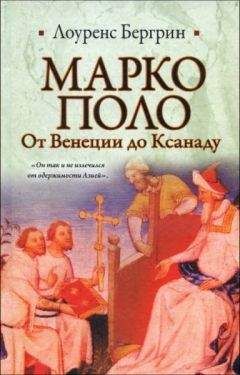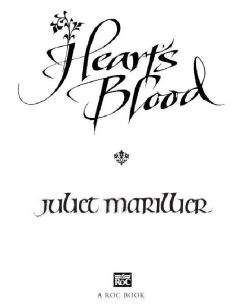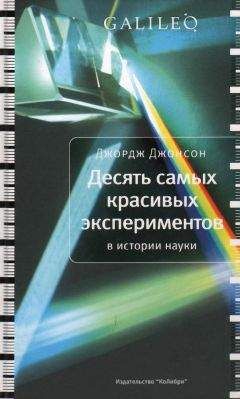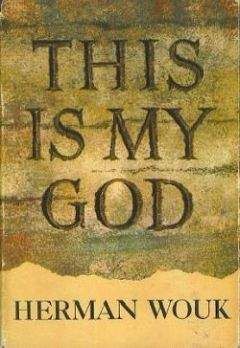Juliet Marillier - Wildwood Dancing
Tati opened her eyes and looked at Sorrow. His face was filled with love and longing and fear. She lifted a hand to touch his cheek. A flush of color crept back over her lovely, wasted features. “My love,” she murmured. “You’re here.” Then she put up her arms and embraced him, and he almost dropped the cup.
“Give that to me,” said Paula briskly. “It’s all right, it’s only for a moment.” Taking the cup, she knelt down by the pond and scooped up water in her hand, dribbling it in until the vessel 393
was once more full to the brim. I stared at her. “Do you have a better suggestion?” she queried, brows raised.
Sorrow helped Tati to her feet. She was unsteady, but could stand with support. A cup of water from the healing well of Ain Jalut.
“Tati.” I could hardly speak for the lump in my throat.
“You’ll have to make a choice. There’s a hunting party just up the hill. Costi may be the new master of Vârful cu Negur˘a, but he can’t keep them at bay forever.”
“Will you come with me, Tatiana?” Sorrow’s voice was so hesitant and sweet—so full of care, of love—that it made my heart turn over.
“I love you,” Tati whispered, resting her brow against Sorrow’s shoulder. “I will come.”
“Paula,” I said, clearing my throat, “give Sorrow the cup.”
But it was Tati who took it, between hands grown so delicate they seemed transparent as white moths in the moonlight.
She held the cup perfectly steady. Sorrow adjusted the bag on his back, then lifted her in his arms.
“Goodbye, Paula,” Tati murmured, her head cradled against Sorrow’s shoulder. “Tell Father I love him, and I’m sorry if I’ve made him sad. Say farewell to Iulia, and Stela, and to Florica and Petru, and . . . Oh, Jena, I’ll miss you so much.”
“Be happy, Tati,” I told her through my tears. “I hope and pray that we’ll meet again someday.”
Tati said nothing more. Her eyes were on the pale face of her beloved. Her expression told me she had been moving down this pathway since the very first time she set eyes on him. I saw 394
that in him she had found her sun and moon, her stars and her dreams.
Sorrow moved toward the rock wall. I could see no cave, no crevice, no crack wide enough for anyone to pass through.
Behind us, where the torches burned in the forest, a new commotion broke out. “There! No, there! What in God’s name was that?”
“Jena,” said Sorrow gravely, “I thank you from the bottom of my heart. Silence and I have seen little of love and kindness in our lives. I did not know what happiness was until I met Tatiana. I did not understand the nature of true friendship until I encountered her family. We owe you everything.” He smiled. It was the first time he had ever opened his mouth properly in my presence. As he stepped back and the rocks seemed to swallow him and Tati up in a kind of shadow, I saw that his teeth were indeed irregular: not the pointed fangs of the Night People, but a very crooked set of quite ordinary ones. In an instant, his smile turned him from coolly handsome to charmingly plain.
“Goodbye,” I whispered.
“Goodbye,” murmured Paula, but they were already gone.
A shimmer of darkness remained against the rock, a place where the fabric of our world was interrupted.
“Wait for me!” someone shrieked. We sprang aside as the white fox came pelting down the hill, its rider kicking her little boots against its flanks to urge it on. Dr˘agu¸ta’s long hair streamed out behind her, a silver streak in the moonlight. Her face wore a savage grin—Paula sucked in her breath at the sight of those rows of little pointed teeth. The creature skidded to a 395
halt beside us, and the witch turned her baleful eyes straight on my sister.
“I saw that, young lady!” Dr˘agu¸ta’s voice was sharp as a boning knife.
“It was the only thing I could think of.” Paula squared her shoulders, meeting the witch’s gaze directly. My sister did not lack courage.
“Showed great presence of mind,” said Dr˘agu¸ta, grinning still more widely. She appeared oblivious to the rapidly approaching men, the barking of dogs. There was a glint of gold threaded through her silver hair. I stared. It looked terribly familiar. Was that a little medallion in the shape of a hunting horn?
“What the queen doesn’t know,” Dr˘agu¸ta said, “I won’t tell her. Tati’s safe—Sorrow, too. Silence will sing again. I’m the one who stirs the pot! Ileana just keeps the fire going.” Her voice rose to a sudden shriek. “Fox, within!” With a yelp and a cackle, the two of them surged forward to vanish into the rock.
There was a shifting and a settling and the stones came back to themselves.
“Interesting,” observed Paula shakily.
The hunt approached at full tilt: boots crashing through the undergrowth, hounds slavering and straining on leashes. In the middle of it was Costi, busily talking. “A man in a black coat?
That looked more like a fox to me. Or maybe a small wolf.”
They reached us and halted, staring suspiciously. It was an odd time for the daughters of Piscul Dracului to be out walking in the forest. I opened my mouth, still unsure which excuse would be the least implausible, but Costi got in first.
396
“Did you see anything, Jena?” Then, before I could reply, he said to the other men, “I should be getting on; I was just walking the young ladies home from a visit.”
“It went past too quickly for us to get a proper look,” said Paula. “Then it just vanished. It was as if the earth swallowed it up.”
“A fox, no doubt of it.” Costi nodded sagely. “Gone to ground. I think you fellows should follow my lead and head for home. You’re not likely to flush out the quarry tonight.”
There was a chorus of protest.
“But it was right here—”
“Plenty of light, Full Moon and all, we should—”
“Cezar would have—”
Costi cleared his throat, and the noise subsided to angry mutterings. “I’ve discussed the issue of Night People with Judge Rinaldo and the village elders,” he said. “You’ve played your part bravely, all of you. But spring’s coming: we all have work to attend to. In time we’ll hold a village council and develop a new strategy together. For now, you need a good night’s sleep, or you’ll be unfit for anything in the morning. I appreciate your efforts to keep the valley safe. They won’t go un-rewarded. Come up to Vârful cu Negur˘a tomorrow, and I’ll have two silver pieces for each one of you in recognition of your efforts. Just understand that from now on, we’ll be approaching the problem differently.”
“But—” ventured one man.
“Shh,” the others hissed, and he fell silent.
“Thank you, Master Costin.”
“We’ll be off home, then.”
397
They dipped their heads, shouldered their weapons, and left. No matter that Costi was only twenty years old and, in a manner of speaking, new to the valley. He had stepped into his father’s shoes with a natural authority. Folk knew a born leader when they saw one.
In the moonlit forest the three of us stood silent awhile, the weight of what had just happened holding us immobile. I thought of asking the others whether they had noticed that the witch was wearing Cezar’s medallion, but decided I wouldn’t.
Paula put up a hand to dash tears from her cheeks. I started to shiver again and found I couldn’t stop. Costi put one arm around me and the other around my sister. He said, “Shall we go home now?”
That was not quite the end of our story. We put it about that Tati had gone on an extended trip to see distant relatives in the east. Later she would conveniently marry in those parts, too far away for easy visits. We told Aunt Bogdana the truth, and she accepted it with lifted brows and little comment. After all that had happened, she was, perhaps, beyond being shocked.
A few weeks after that eventful night, we had the most welcome of surprises. Father rode into the courtyard, much thinner but undoubtedly in good health. Gabriel was by his side, with two baggage ponies bringing up the rear. The letter brought to them by a certain preternaturally tall messenger had been the only one of mine to reach them. Father had received several from Cezar during the winter, assuring him that all was well with us. He was much relieved to find that this was 398
indeed so, and that everything was as it should be at Piscul Dracului. Almost everything.
Father went very quiet when we told him about Tati, and for a little I feared a relapse. But the fact that Costi was alive, and that he and I wished to marry, was a powerful force for healing. We reassured him that Tati would be well and happy, and that she was among good friends.
As for Costi and me, Father’s return home gave us a little longer to enjoy getting to know each other as girl and boy, rather than girl and frog, before we needed to organize a wedding and start work on producing the male heir required for Piscul Dracului. More time: more walks in the forest as spring slowly crept back to our valley, more campfires, more adventures. More kisses. We were getting better at those all the time. We talked a lot about the future, a future in which we would work together in the business and travel together to those exotic places I had dreamed of.
Aunt Bogdana invited Iulia up to Vârful cu Negur˘a to help with planning a betrothal party. R˘azvan and his sister would be invited. Paula and Stela worked on the papers Paula had brought home from the Other Kingdom. I had told them about the King of the Lake game, and how my taking back my little crown meant our portal would be closed to us from now on.
They were trying to find another crossing human folk could use. Paula was sure the secret was hidden somewhere in those documents.
I wished them luck. In my heart I knew that for me and for Costi, the visits to Dancing Glade were over. We had moved 399
on to a new adventure, one that belonged wholly in our own world, and the prospect of it was so joyful and so exciting that I had few regrets. Only Tati: my lovely sister, destined to fade from human memory and become a princess in a fairy tale, captured by a dark suitor from the realm beyond, sacrificing all for love. I hoped they were truly happy, she and Sorrow.
I did not think I would ever see my elder sister again. But Piscul Dracului was a place of unexpected corners, of eccentric ways and sudden surprises. In time, a new generation would play here, would climb the crooked stairways and run along the galleries and make daring forays out into the great mystery that was the wildwood. Perhaps a pair of children would one day stumble upon a secret portal, and open it by accident to find a wondrous world of magic beyond. They might see the glowing lights and hear the beguiling music of Ileana’s glade. And if they dared to cross over, perhaps they would dance with Tati’s children.
400
Author’s Note
Transylvania is a region rich in mythology and folklore, with a long and tumultuous history. Traveling there, I found that it lived up entirely to its reputation, with visible links to an ancient past as well as uglier remnants of more recent times. Villagers scythe hay in the shadow of crumbling Communist-era factories; horse-drawn carts traverse roads leading to clusters of concrete apartment buildings.
During my time there, I visited such well-known attrac-tions as the walled medieval city of Sighi¸soara, but also strayed off the beaten track to meet some of the extraordinary people of the Transylvanian villages. From the protective red tassels on the harness of draft horses to the many crucifixes by the way-
˘
side, from the delights of mamalig
˘ ˘a served with cream and fer-
mented cheese to the first toe-curling mouthful of home-brewed plum brandy, I had a rich and unforgettable taste of life on the Transylvanian plateau, surrounded by some of the grandest mountains and wildest forest in the world.
On hearing the name Transylvania, many people think of vampires and werewolves. Bram Stoker has a lot to answer for!
His novel Dracula, published in 1897, sparked readers’ imagina-tions. It gave rise to an elaborate vampire mythology, which became so popular over the years that many people came to believe it represented the authentic folklore of the region.
There is a whole “vampire tourism” industry in Romania, which encourages the (incorrect) belief that the fifteenth-century 401
prince Vlad ¸Tepe¸s was the original Count Dracula. Vlad inherited the right to use the name Dr˘aculea (son of Dracul) from his father, Vlad III, who was a member of the chivalric Order of the Dragon.
In Romanian, the word drac means both dragon and devil, and it is not difficult to see how this led to a devilish reputation for Vlad the son. He did carry out some cruel and barbaric acts during his time as prince of Wallachia, but he also led his people in a strong defense against the Turkish invaders. There is, however, no evidence at all that he was a vampire.
Stoker’s novel is a work of imaginative fiction. But his story does owe something to the original myths, legends, and beliefs of Transylvania. In Wildwood Dancing , I have tried to go back to earlier sources for my inspiration, and it is for this reason that Tadeusz and his followers are not referred to in the book as vampires, but by the more general name of Night People. I have deliberately made their portrayal ambivalent—are they all bad or partly good?—in order to avoid the Dracula stereotype.
Crucifixes stand all over the rural landscape of Transylvania. They are erected to deflect not only the powers of the devil in this mostly Romanian Orthodox region, but also other entities that may live in the forest—ancient forces that may threaten those who do not respect them.
This is a land where bears and wolves come close to human settlements, a place where snow can lie heavily for up to six months of the year. To survive in such a harsh environment requires a particular understanding of the balance between humankind and wild nature. Certain rituals in which animal masks 402
are worn take place in the more isolated villages at appropriate times of year. These may go back to the practices of the Transylvanians’ ancient ancestors, the tribe of the Dacians, among whom there were both shaman-healers and a warrior caste dedicated to the wolf.
As Paula explains in Wildwood Dancing , the forest provided a refuge for the people of the plateau through hundreds of years of unrest. This enabled Transylvania to retain some autonomy, and a strong sense of identity, despite the presence of such invaders as the Tartars, the Magyars, and the Turks.
403
Glossary
Bra¸sov
A merchant town in central
Transylvania. Pronounced Brah- shove
ciorb˘a
Traditional Romanian broth.
Pronounced chor-buh




